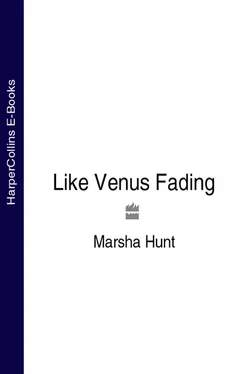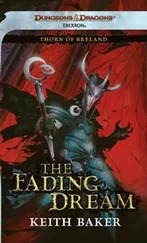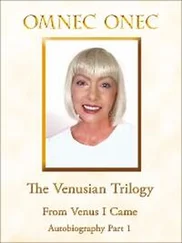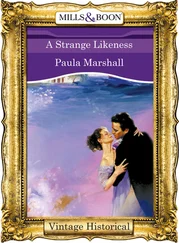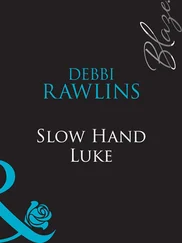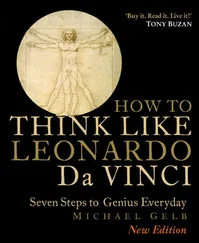The nuns had made me think that anger was wicked and Mother had passed her impoverished notion on to me that tempers were the luxury of the rich, so I don’t know where my sudden eruption had come from, but I was seething. ‘You do wanna tap, Lili, and don’t ever say you don’t!’
My mother was more taken off guard than my sister and although I got slapped by them both, I was glad that I’d made my point.
What followed two days later is what I sometimes imagine is the day my career began.
We had been in Los Angeles for under a week and when the heat in that dormitory became intolerable, Mother took us for walks. One blistering afternoon she pointed to a shopfront on the opposite side of the street. ‘I betcha that’s where Reverend Walters from my new church say his niece works.’
The costume store was unlike the familiar brick buildings in Camden and different from the little wood-framed shotgun houses that I’d seen in Mississippi. It had smooth adobe walls and a roof of red clay tiles and was sandwiched between identical buildings on either side.
Sun baked the sidewalk and burned the back of my neck as I stood with my hand in Mother’s, afraid that she wouldn’t suggest that we cross the street where only a few old Model Ts were rattling up and down.
Together we ambled over to peek into the small display window. Pressing my nose against the glass, I strained on tiptoe to see the masks, feather head-dresses, pink toe shoes with satin ties and stiff white tutus.
I must have been salivating like an old sheep dog when we entered the small shop. It smelled like a second-hand clothes store, packed as it was with slightly musty old costumes for rent.
As I prayed that my sister wouldn’t mention uniforms or ask Mother any impertinent questions, my heart started to play leapfrog. I felt like a rich kid in a toystore, because my Mother assumed a self-important air, when she told the elderly male assistant that she wanted to see two pairs of tap shoes. I didn’t dare smile, because there was something sobering about the moment. Mother didn’t look nervous and didn’t seem embarrassed to ask for assistance which she normally was in stores, and I guess Lil sensed that something radical was happening, because even she kept her mouth shut.
The shoes that I was given to try on were black with round toes. I can’t recall if I sat to try them on or stood up while somebody helped me slip my foot into them, all I know is that when I walked across the costume store in them anybody would have thought that I’d tried on some wings. My whole body responded to those shoes and it was like I was a mummer in the Thanksgiving parade. I seemed to lean back and strut. The ease of the leather and the comfort – I was like a grown woman appreciating the caress of French glove leather …
When I went bankrupt thirty-five years later and one of my creditors accused me of having a shoe fetish, I told the judge about my experience with Mother in 1930, during the Depression, when I was fitted for the first time with shoes, the cheapest tap shoes, which hadn’t been shaped first by Mabel Herzfeld’s feet. Or by my sister’s.
Pretty shoes always helped me look other people in the eye.
As Lil and I left that store with our new shoes in a bag, my face must have ached from smiling. Those shoes were a rebirth.
When the whole country was littered with the jobless and homeless, Mother, a baby-faced coloured girl from the backwoods with two kids to feed and no prospects, must have sensed that she had accomplished something momentous.
Even my sister became putty in Mother’s hands and did all she could to be helpful.
That’s how we ended up in that crowded public school near Reverend Walters’s church.
One night in ’63 when it suddenly hit me that Mother was the reason I could dance but couldn’t spell, I tried to stab her.
Those were the days when mothers were getting blamed for everybody’s neuroses, but that wasn’t the only reason that I suddenly saw her as Satan. She thought I had gone crazy.
One of the most humiliating things about my supposed suicide wasn’t just the photo of me naked, ten pounds overweight, it was the suicide note that I’d supposedly written, which made me sound like a pea brain. Somebody had mastered my handwriting, which I’d hidden from fans after my husband had made fun of it: ‘Irene writes worse than my granny, who never finished fourth grade.’
Neither did I really.
Sure I made it back and forth to school for a day here and a day there, but I was always behind and grew shrewd at hiding that I knew less than the other kids, whereas Lilian … her extra years with the nuns stood her in good stead for life.
I told Charlie that only she would have gone to all that trouble with my suicide note but he couldn’t figure out her motive.
In Hollywood to be forty-two, unbankable and bankrupt was a reason for suicide, so somebody guessed that I was a suitable case, and I guess I was sort of addicted to sleepers, like most stars I knew in the 60s. If we didn’t want to deal with life, it was natural to want to sleep for fourteen, fifteen hours at a stretch. But Charlie refused to bring sleepers into the house.
Marijuana, yes. LSD, yes. Morphine, even. But sleeping pills, no.
Louise Taylor’s Saturday-morning tap-dancing class was held in the room behind her father’s bar and grill, sadly bulldozed after the war in a rezoning scheme. Mr Taylor’s brother, Derville, also had his shoeshine stand there, so it was a busy corner. Sociable. Where people who didn’t go to church could meet. Laugh and gossip and show off their week’s pay in some loud Saturday-night togs.
Louise, who we all called Miss Taylor, had been a chorine at the Cotton Club in Harlem the year before, but I didn’t know that was something for her students to brag about. I didn’t know that the Cotton Club was the night spot where New York’s arty set, like Carl van Vechten and F. Scott Fitzgerald, went to rub shoulders with what they called the Darktown Strutters, and it would be years before I discovered that real Harlemites turned their noses up at the Cotton Club …
Miss Taylor was all of eighteen, though her flapper’s bob made her look older, especially the first time I saw her in that deep-rose sack dress. Her pockmarked skin, a pale olive colour, wasn’t the sole reason she could have passed for white; she also had straggly light brown hair and a completely flat backside.
Inching my way into the shabby back room for my first tap lesson, my head was as full of fantasies as the other eight girls. Including Lil. I’m sure we all imagined that we would emerge from day one like the sophisticate that Miss Taylor was. (I didn’t think she was gawky like my sister claimed. In fact, I saw Louise as stylish and graceful. Her flat chest and boyish hips suited the Jazz-Age clothes she wore, and her long, sure stride was sort of elegant. Although it’s true that in those days it was considered unfortunate for a girl to be so tall.)
I loved Miss Taylor for having such lean, muscular calves, because for the first time my own seemed less pitiful. They were the thinnest in her class but she’d remind us all, ‘Bless the Lord for your legs, and oil those feet!’
She couldn’t afford a pianist so she produced rhythms for us to dance to with a long baton that she beat against a wooden mallet. Class lasted forty minutes and we knew it was nearly over when she clapped her hands and wiped the moustache of perspiration from her top lip. That was the signal for us to close our eyes and listen to her dance, before we put on our street shoes for home. To have us hear the rhythm of her feet rather than watch them move was her own progressive idea … Her steps were as rhythmic as a typist reeling off sixty words a minute. Clack-clack-clickety-clack-clack. Clack-click-clackety-clack-click. The syncopation was like fireworks and got under my skin so, I couldn’t wait to imitate the sound with my own feet.
Читать дальше
